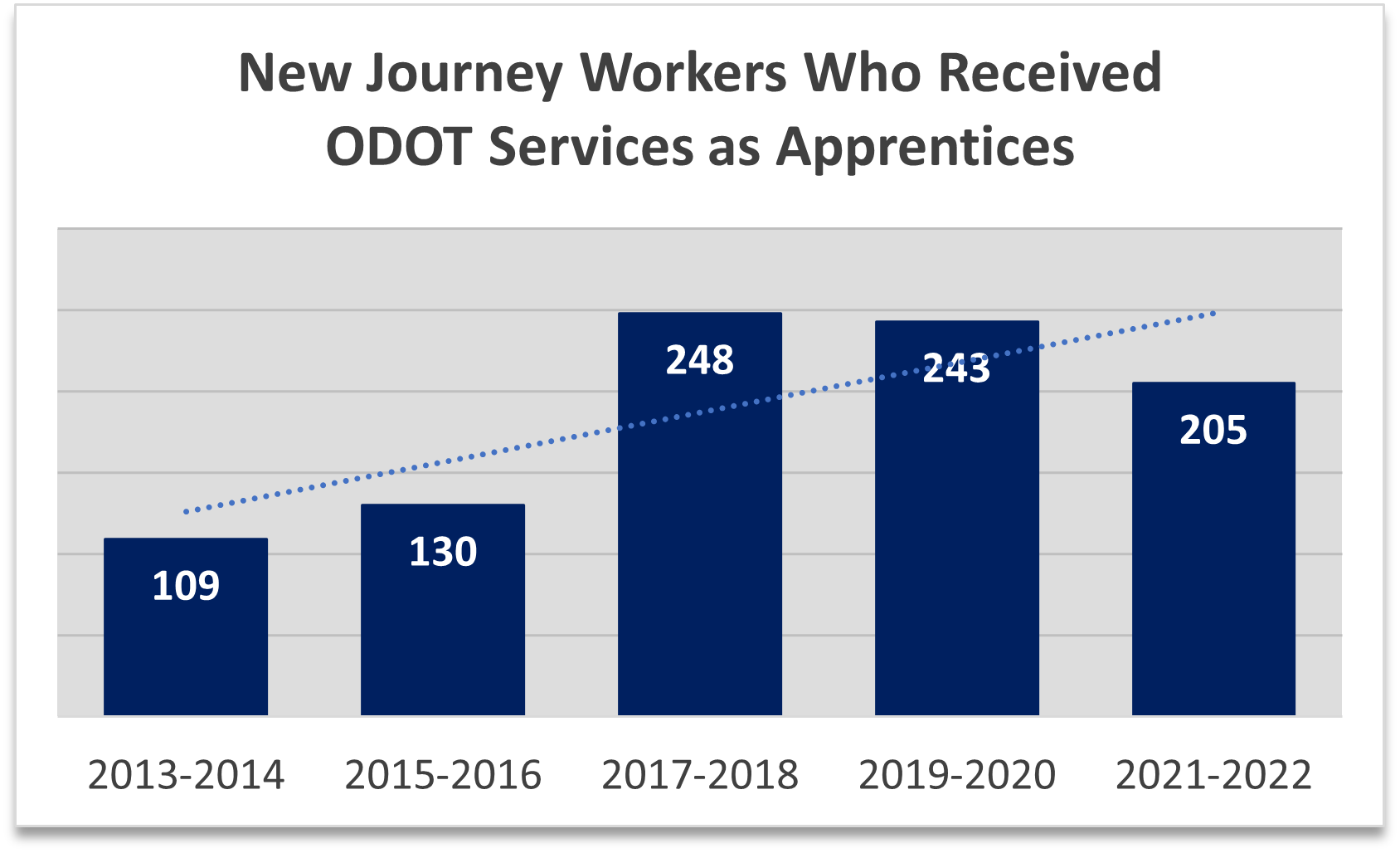We're creating new, inclusive ways to hear from more people in the communities we serve
- We're reviewing our internal policies to ensure they foster equitable community outcomes.
- The Equitable Engagement Compensation Program pays people in Oregon who provide feedback about ODOT projects or initiatives.
- Community Engagement Contracts (CEC) build capacity with Community Based Organizations to serve as prime contractors for community engagement services.
Expanding our workforce diversity to reflect the communities we serve across Oregon
Diversifying how we look, listen and act helps us to be more culturally responsive and helps us achieve equitable outcomes.
2023 ODOT workforce compared to Oregon 2022 cencus data Source: US Census Data, ODOT Workforce Choice Index
We are expanding workforce development efforts
Women and people of color face unique challenges to entering the construction industry. Financial barriers are a factor for many communities, too. We have partnered with the Oregon Bureau of Labor and Industries to add more diversity in hiring, increase apprenticeship numbers and provide resources for training.

Services includes:
- Classes to prepare workers for apprenticeship.
- Resources to pay for childcare and travel costs.
- Training for respectful and inclusive workplaces.
Source: ODOT Office of Equity and Civil Rights, BOLI
- We also work with the Oregon Department of Corrections to train adults who are incarcerated. Two of our DMV customer assistance call centers are staffed by adults in custody who receive extensive training as phone agents.
- We are also testing a program that certifies female inmates as equipment operators or laborers. After their release from prison, they can use these certifications to directly transition into our highway appenticeships and workforce. So far, the new program has proven popular:
- Application numbers are 5 times what we can accept for each cohort.
Our programs are increasing contracting opportunities for DBEs
Disadvantaged Business Enterprises (DBE) are businesses owned and controlled by socially and economically disadvantaged individuals. ODOT offers supportive services like professional training, mentoring, and consulting services which help develop a firm’s ability to perform successfully on ODOT contracts. While we are making progress, there is still work to do to reduce or eliminate barriers and we are commited to ensuring DBEs are successful in doing business with us.
From 2021 to 2023:
- ODOT awarded approximately $1.87 billion in contracts for 244 projects.
- 12.87 % of ODOT awarded contracts value, $240.46 million, went to Disadvantaged Business Enterprises. This includes both prime and subcontractors.